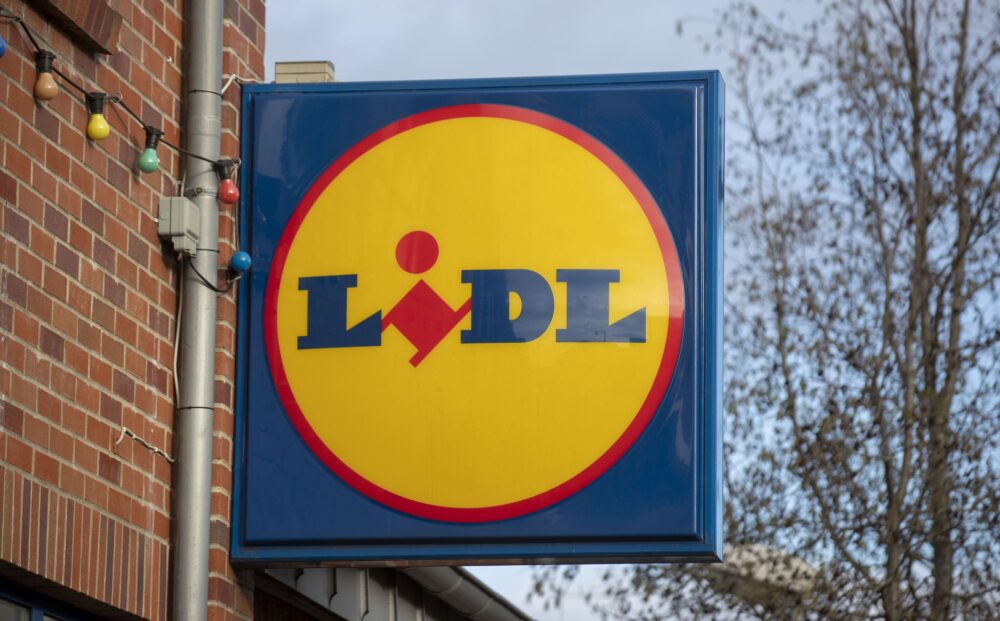Lidl has been forced to temporarily stop selling a version of one of its own brand gins after being sued by the makers of Hendrick’s gin who claim a trademark has been infringed.
The supermarket chain is defending the case and claims there are “clear and obvious differences” between the Hendrick’s trademark and the Hampstead gin product.

Hendrick’s gin is produced by Scottish firm William Grant and Sons and was launched in 2000, with their bottles bearing a diamond-shaped label in a trademark which became effective from January 2012.
Lidl is the parent company and UK owner of the “Hampstead” trademark of the same class 33 for alcoholic beverages, which was filed on March 8 2012 and registered on March 12 2013.

Hampstead gin has been sold by in Lidl stores for at least 10 years, however, the bottle was redesigned in late 2020 and began appearing on shelves in December.
But after the issue was brought before the Court of Session in Edinburgh, German-owned Lidl has been temporarily forced to stop selling Hampstead in its new guise.
Lord Clark noted Hampstead was now priced at £15.99 – with the original version having been sold in Lidl for just £9.99.
In his written judgment, he noted the pursuers argued: “While a substantial volume of products in the defenders’ stores were private label products (i.e. own brand), the defenders did stock other big brands in their United Kingdom stores, such as Coca-Cola, Pepsi, Heinz, Nescafe, Budweiser, Corona, Stella Artois and San Miguel.
“The defenders’ customers were aware that well-known brands can be purchased in the defenders’ supermarkets often at discounted prices in comparison to other retailers.”
However, the judgment also noted Lidl argued they “did not currently have any branded spirits listed as products nationally” and their average customer would not expect to find Hendrick’s Gin for sale but would “be familiar with Lidl’s own label brands, such as Hampstead”.
With regards to the trade mark, Lord Clark said: “Notwithstanding the existence of some measure of dissimilarity, having regard to a comprehensive assessment, there is a sufficient basis to argue visual and conceptual similarity between the mark and the sign.
“Bottle shape and colour are often intended to be distinguishing features of gin products.
“I accept that the more distinctive the mark the greater is the likelihood of confusion and that the Hendrick’s mark relied upon is quite distinctive and recognised on the market.
“I do consider that there is sufficient material, from the information put before me, to infer (for the purposes of a prima facie case) that there was a deliberate alteration of the get-up of the Hampstead product to seek to cause at least an association with Hendrick’s.
“The defenders also have another get-up to sell the product, which is not challenged, so it is just the sales of Hampstead in this particular get-up that are stopped.”

He also referred to content of social media posts lodged on behalf of Hendrick’s which included: “Blatant copying and ripping off of reputable brands”; “Looks a lot like another bottle of gin” (followed by a winking emoji); “Looks like Hendrick’s Gin”; “looks like a complete rip off of Hendricks!!”; and “fake copy of Hendricks”.
Lord Clark said: “From the material put before me, I am in no doubt that the trademark relied upon has a reputation in the United Kingdom.
“I therefore conclude that there is a reasonable prospect of success on the part of the pursuer in showing a change in economic behaviour or a real likelihood of such a change by customers who buy from Lidl, and hence that it has created an unfair advantage.
“There is some support within that (social media) material for the proposition of Lidl riding on the coat-tails of the Hendrick’s mark so as to benefit from its attraction and also that this could influence the economic behaviour of the defenders’ customers.”
A Lidl spokesman told the PA news agency: “Although naturally disappointed, we note the court’s decision and have closely adhered to the requirements outlined within the ruling.
“We continue to liaise directly with the parties involved and hope to reach a satisfactory resolution in due course.”
It comes after Marks & Spencer started legal action against Aldi last month over Colin the Caterpillar cake and the rival Cuthbert product.

















